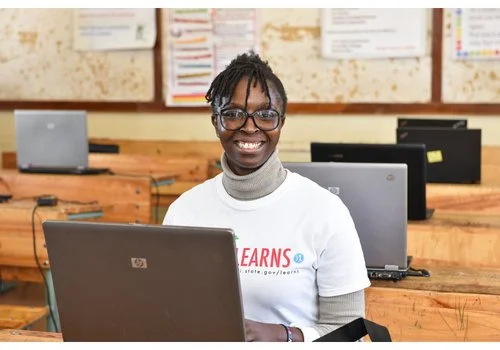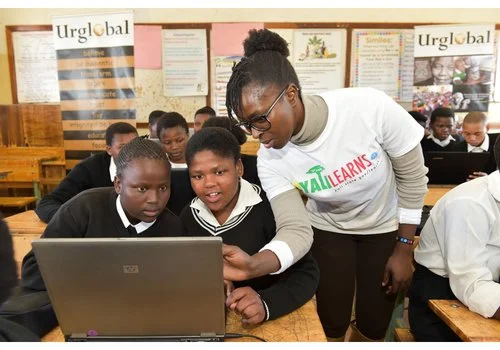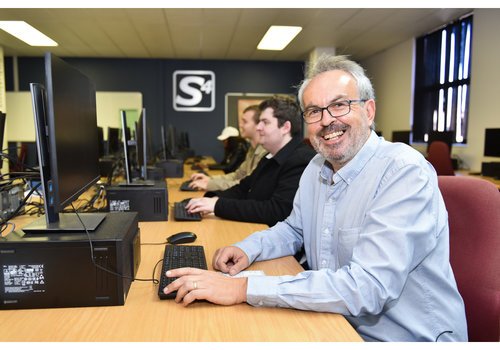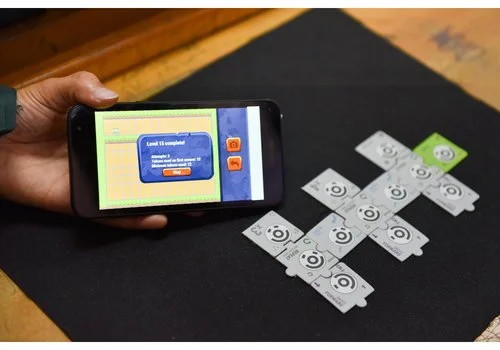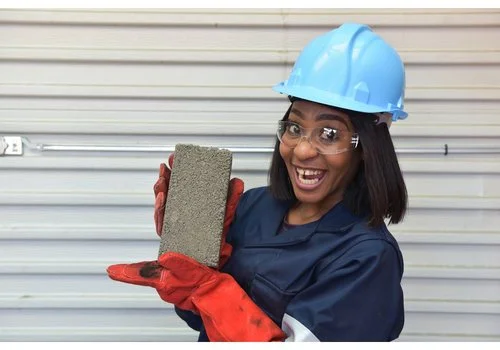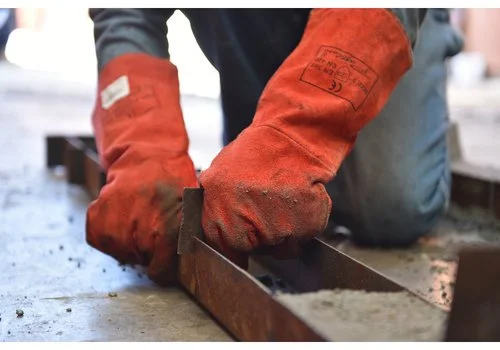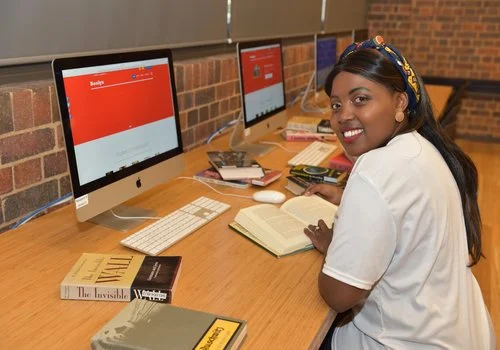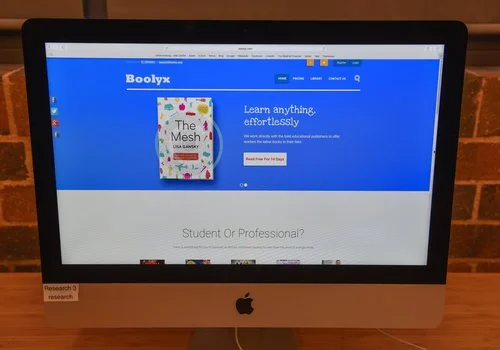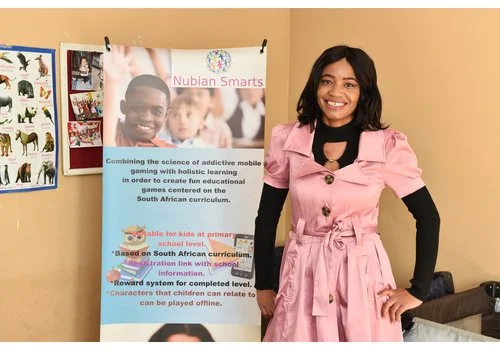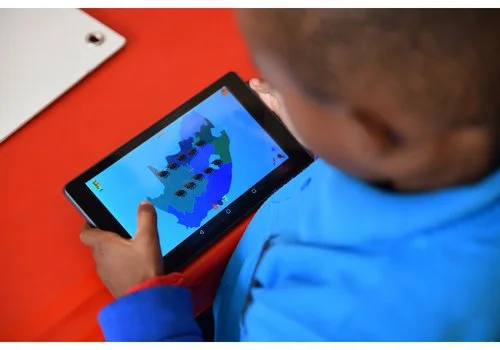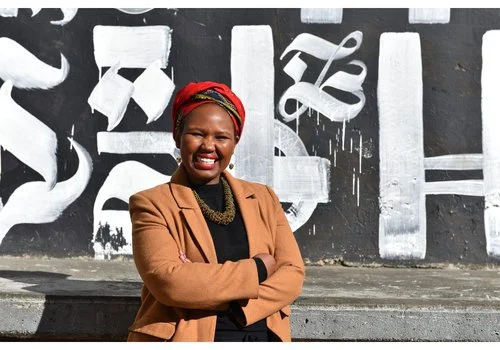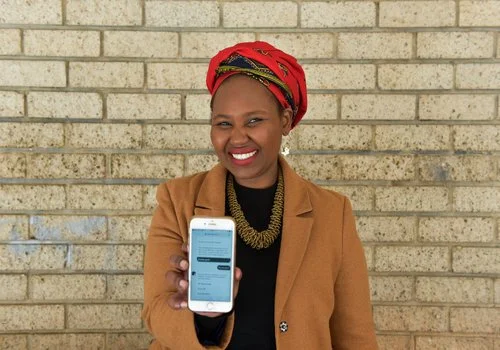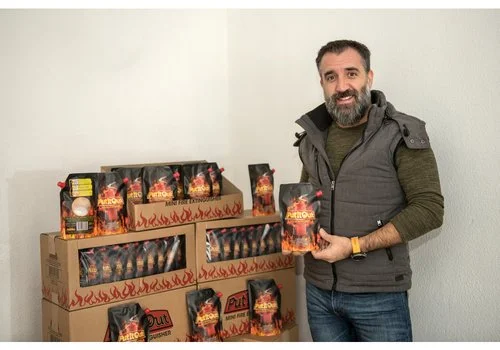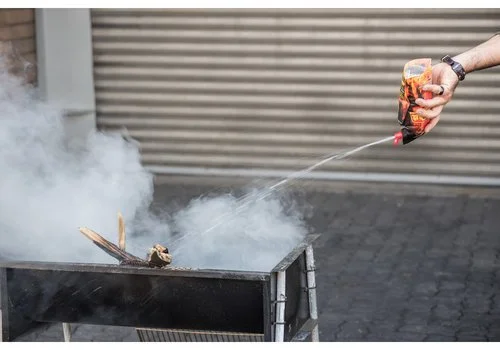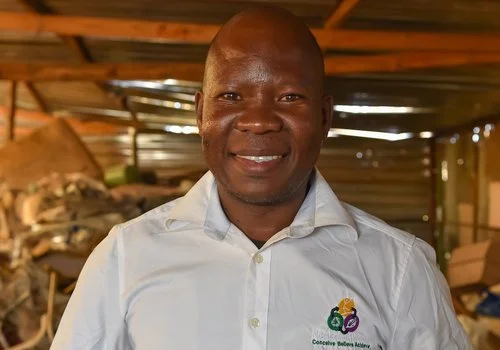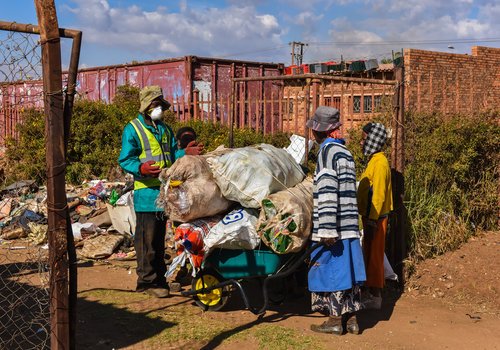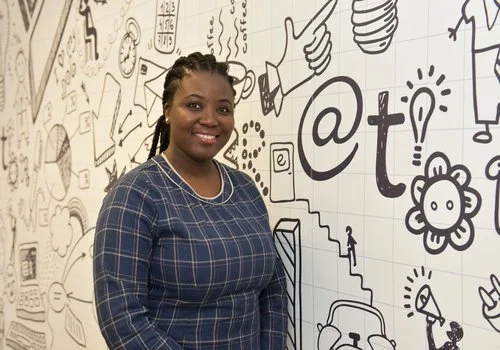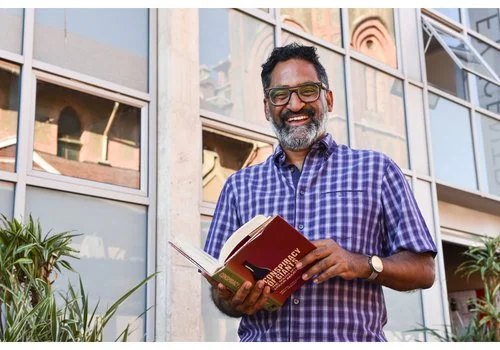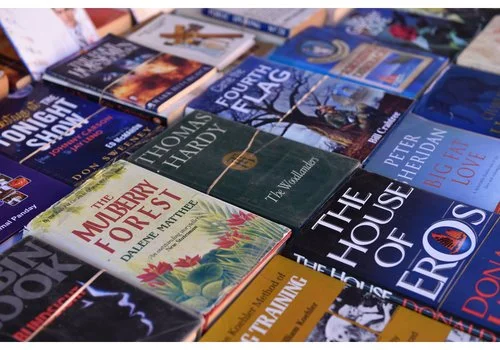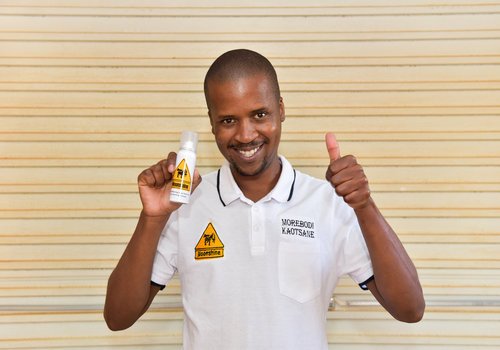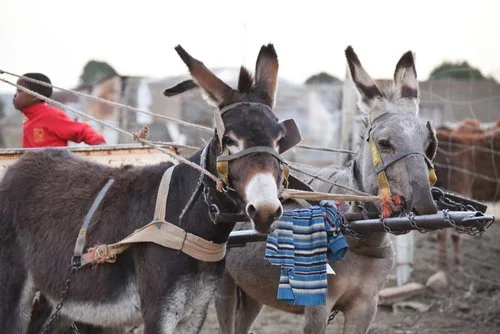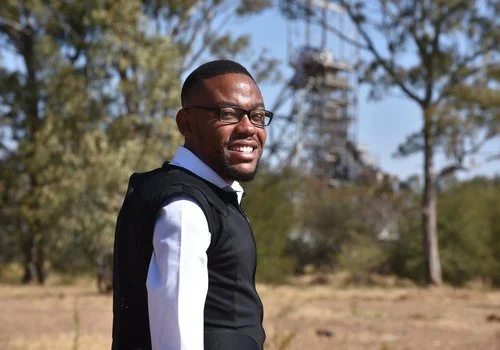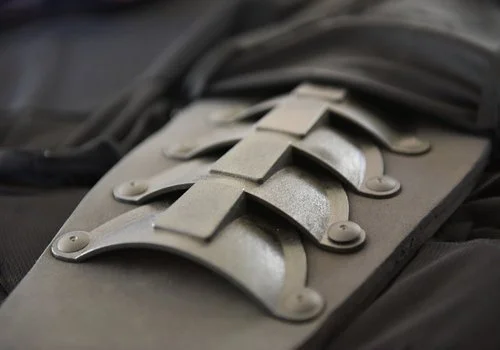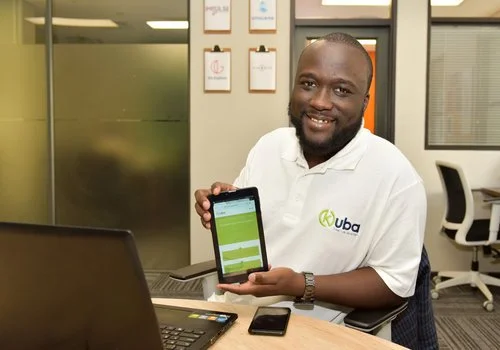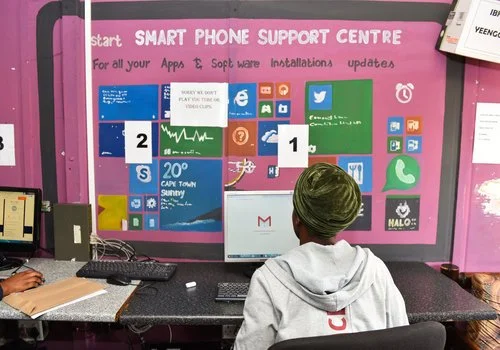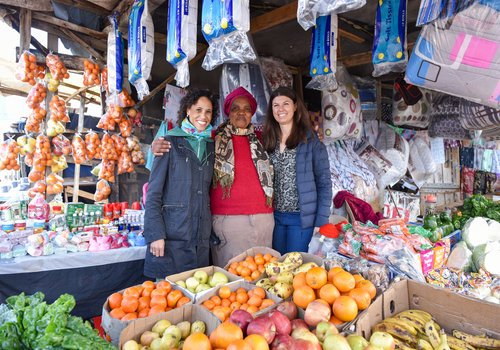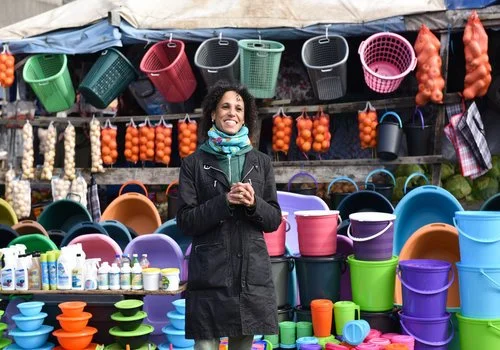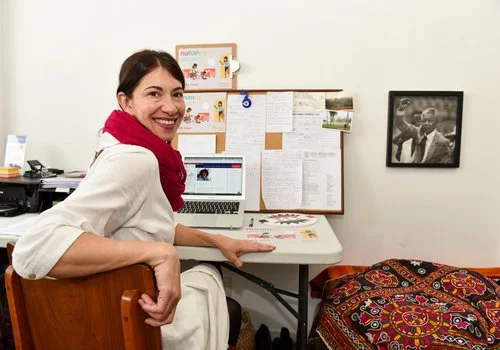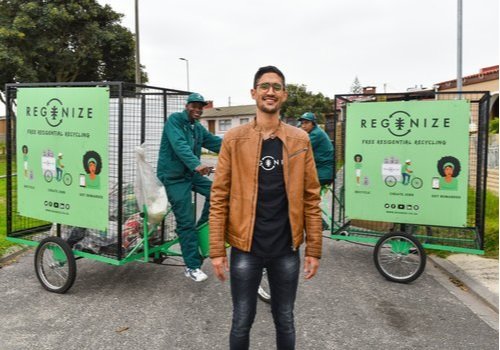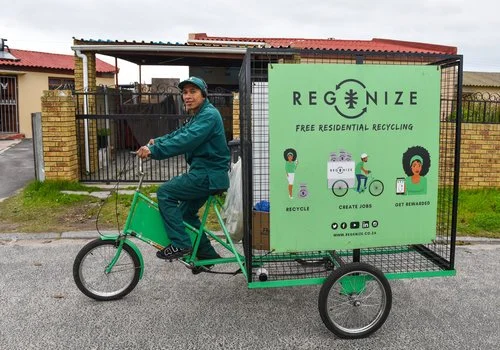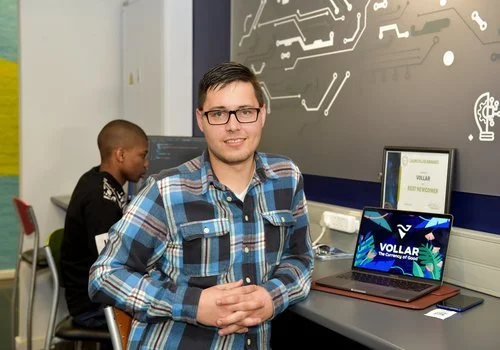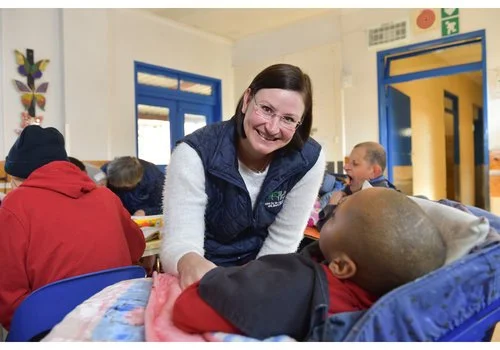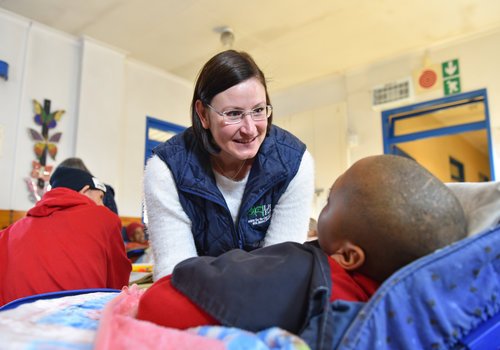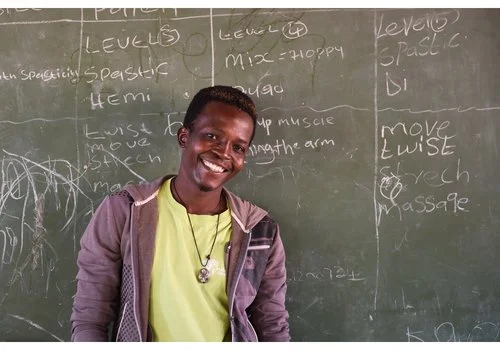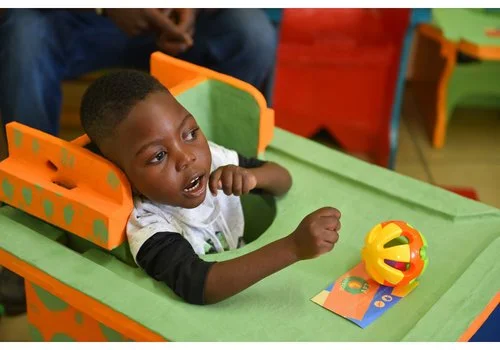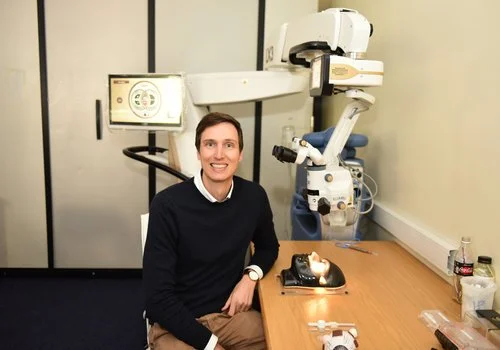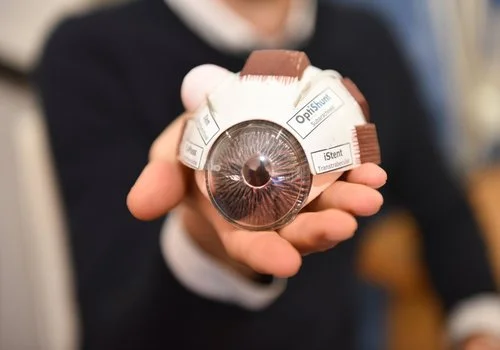SAB Foundation Social Innovation and Disability Empowerment Award finalist profiles
The SAB Foundation has selected 20 finalists for its 2019 Social Innovation and Disability Empowerment Awards. The final winners will be announced at an official awards ceremony on Wednesday, 09 October 2019. The finalists, who were selected from over 300 entries this year, tackle issues such as environmental sustainability, technology accessibility and disability inclusion.
Launched in 2011, the SAB Foundation Social Innovation Awards invest in innovative business ideas that can solve social problems, supporting over 100 entrepreneurs to-date. In 2016, the SAB Foundation Disability Empowerment Awards were launched to promote social innovations that improve the quality of life for people with disabilities through assistive devices, training or employment.
Below are the profiles of the 17 innovators that have been selected as finalists for the 2019 Social Innovation Awards followed by the three 2019 Disability Empowerment Award finalists.
“Our innovation is focused on community development, upliftment, and creating change in rural communities. I am from a rural community and saw first-hand how the lack of technological skills negatively influences exposure to good opportunities,” Luleka Mkuzo, Founder.
060 521 8322 / mku@urglobal.co.za
In 2017, Luleka Mkuzo designed the Mobile Rural Technology Park, a mobile technology park equipped with multiple laptops to give learners and teachers in rural communities access to technology, the internet, and basic computer skills.
She created the Mobile Rural Technology Park to address the lack of technology skills training for rural students and community members. An issue which she believes increases the inequity gap by making it harder for these communities to compete for equal opportunities with those in urban areas.
What inspired Luleka?
“My mother, who is from a rural area, is my inspiration. My father didn’t believe that women should be educated, but my mother still got an education for herself and her siblings. She also helped many community members get an education and find jobs.
Growing up and seeing my brilliant peers finish Matric and then do nothing because of a lack of access to higher education platforms motivated me to create the Rural Technology Park.”
Luleka says she has learned that as an entrepreneur, one cannot work alone. No matter how good an idea is, it won’t go anywhere without other people buying into your vision and seeing the value it will add for them as well. Her prototype piloted with learners from grade 7 and grade 9, as well as male and female teachers.
TANKS coding app
“Existing kids’ coding apps need computers or expensive equipment, whereas we make use of available smart phones and cheaper puzzles pieces. TANKS can work offline and only requires internet access for downloading the app,” Professor Jean Greyling, Founder.
083 554 4183 jean.greyling@mandela.ac.za
In 2017, Professor Jean Greyling and his student, Byron Batteson, started working on the TANKS Coding App, a free mobile application that makes use of puzzles and image recognition to introduce learners to coding without the use of a computer. Byron first produced it for his BSc Computer Science Honours project at Nelson Mandela University.
What inspired Jean?
“Seeing students flourish in computer science and knowing that they have a great career ahead of them inspires me. I have a passion for software development and seeing learners choose it as a career.
For many years I have had the dream of commercialising a student project. TANKS created this opportunity for me as it is an excellent project and Bryon, a determined student, developed it. It also addresses the social need for more software developers in the country, which is also my passion.”
According to Jean, President Cyril Ramaphosa addressed the need for learners to code at a young age in his State of the Nation Address. However, many schools do not have the computers required to teach coding. Once downloaded, the TANKS app, can be used on a learner’s or teacher’s own device, providing 35 challenges that use puzzle pieces to build code.
A prototype has been developed and is fully functional on both Android and Apple devices. Jean’s main business is attracting corporate sponsorships so that leaners who attend coding workshops receive the coding challenges for free. Currently, he has 25 part-time staff members.
PlastiBrick
“No water is used in the production of PlastiBricks. Thus, as well as reducing plastic waste, they also save water.
Our environmentally friendly bricks are also denser and have a lower water absorption rate to give buildings a longer lifespan,” Kekeletso Tsiloane - Founder.
072 723 3552 / keketsilo@gmail.com
In 2016, Kekeletso Tsiloane successfully prototyped the PlastiBrick, an invention that uses recycled plastic, collected from landfills, households, and waste pickers, to manufacture stock and maxi bricks that are strong, durable, fire retardant, and environmentally friendly.
Through her innovation, Kekeletso aims to empower women, youth, and disabled individuals. She would like to facilitate training in recycling materials and create employment opportunities for women, the youth and people with disabilities, who she believes can assist in the manufacturing process.
What inspired Kekeletso?
“My father taught me and my sister to be independent and not let fear control us. He helped us dream big, work hard.My motivation to start PlastiBrick started from the exposure I had in the construction industry. My father had a construction company and would often take us to site.
Our entrepreneurial journey has been an adventure. It taught us that entrepreneurship means knowing everything about your company not just what you specialise in. It’s also a lonely journey and one needs to be strong mentally and physically. As women, we need to be tenacious and persistent.”
PlastiBrick has a prototype which has been tested against the South African Bureau of Standards and found to be stronger and less absorbent than cement bricks. It has been sold to small scale contactors and Kekeletso has nine permanent employees.
Boolyx Edu-Tech
“Boolyx Edu-Tech has surveyed 300 students at the University of Witwatersrand, finding that 94% of students have a strong desire to make use of the service, with 74% willing to pay a monthly fee. Book publishers are receptive as they face challenges of piracy and loss of revenue to the second-hand book markets,” Kutlwano Ngwarati, Founder.
083 521 6537 / kutlwano@joyhost.co.za
In 2018, Kutlwano Ngwarati established Boolyx Edu-Tech, an online platform for university students to access more affordable textbooks and academic publications. This platform allows students unlimited access to over 400,000 textbooks for a monthly subscription fee, thus reducing the cost of textbooks by over 70%.
According to the Boolyx Research Team, South Africa has over 1.1 million tertiary students and 63% of them come from low-income households. On average, a student has to pay up to R8 900 per year to purchase the required textbooks for their academic year. Unfortunately, poorer students are mostly affected by the cost, which increases their risk of failure.
What inspired Kutlwano?
“I was inspired by Dr Judy Dlamini. She is the epitome of everything I aspire to be as a businesswoman, mother, and wife. She has achieved outstanding success despite her humble beginnings and she continues to break barriers in both business and life.
From a young age, I’ve been a dreamer and a visionary and I’ve always known that I am destined for something great. The Fees Must Fall Movement opened up a platform for me to reflect on how I can contribute towards the economy of South Africa and make things better in my country.”
Boolyx Edu-Tech is affordable and benefits both students and publishers. It is a first in the market with very few competitive services. Currently, an e-reader prototype is being built that allows students to highlight and annotate as they would on a physical textbook. Kutlwano Ngwarati has three permanent employees.
NuMaths Kids App
“The NuMaths app has been tested on Grade One learners and has received great feedback. We would like to extend the application to all primary school grades. The app has received 400 downloads with 150 daily active users,” Lungile Maile, Founder.
073 758 3166 / lmaile@nubiansmarts.com
In 2016, Lungile Maile developed the NuMaths Kids App, a mathematics mobile application with 120 games that is designed to entertain and educate children between four and seven years old.
The app consists of games that are based on the current South African Grade One maths curriculum. It is a cost effective solution to keeping kids entertained, while also educating them. The app can be downloaded from the Google Play Store and can be played without the use of data or the internet.
What inspired Lungile?
“I am inspired by the impact the NuMaths Kids App can have on the future of our children. I believe that through the app we are creating a generation of young people who are problem solvers.
I kept reading about our country's educational problems. I noticed how my son and nieces were intrigued by smartphone devices and how quickly they learned when playing the games. However I found it hard to find games that were based on the South African curriculum, so I decided to develop my own.”
Existing mathematical apps are either not based on the South African curriculum or have to be used with the internet. The NuMaths Kids App addresses these two issues.
"I have grown a lot since I first came up with the idea to develop the NuMaths Kids App. As an entrepreneur you quickly realise that you know a lot about nothing, so having networks and people supporting you goes a long way,” says Lungile.
Since creating the app, Lungile has made it to the top 20 of the Cell C Hangman reality show and is an Alumni of the 2017 Tony Elumelu Entrepreneurship programme. She has four part-time employees.
Pro Se Legal
“Pro Se aims to assist women, youth, and people in rural communities as they are often the most vulnerable and excluded when it comes to accessing the justice system. We aim to enable effective and affordable access to justice through access to information on the law, its processes and procedures”, Grace Gichanga, Founder.
076 427 6758 / ggichanga@gmail.com
In 2018, Grace Gichanga established Pro Se Legal, a chatbot that provides practical and relevant legal information via chat platforms, such as WhatsApp and Facebook Messenger. Information is available 24 hours a day and is provided though text, video, audio, and images.
Seeking justice can be a long and costly process. “Pro Se is a chatbot that was developed to address some of the most significant barriers to accessing justice. It is enabled by artificial intelligence, machine learning and natural language processing. This gives it the capacity to have real conversations with users to ensure that they understand their rights, as well as how to effectively enforce those rights, irrespective of their chosen language or literacy levels. It is available on a pay per use subscription basis.
Grace has conducted over 50 workshops and found that, despite people knowing that they have rights, they were not aware of how to effectively enforce those rights.
What inspired Grace?
“My father inspired me because he came from extremely humble beginning and built success for himself in business.
I was motivated to start Pro Se Legal by the simplicity of real-time conversations on WhatsApp. Irrespective of whether I was running a workshop in the inner city or in the township, people used whatsApp to communicate with me and access information on their rights.
Starting Pro Se has taught me that entrepreneurship is a journey of continuous learning.”
Pro Se was founded on the principle of inclusivity, which is why it works off chat platforms, and is available in any of the official languages. It is not limited to working hours or geographical constraints.
Grace now employs three part-time employees and has partnered with Praekelt Consulting. Praekelt are leaders in the development and implementation of mobile technology to provide access to essential information and vital services in developing countries. They are dedicated to using mobile technology to improve the lives of people living in poverty.
Put It Out Mini Fire Extinguisher
“The concept of the fire extinguisher came after a fire broke out in the community of Khayelitsha in 2015. Our product is a first of its kind and was designed to be the first response, to stop small fires from spreading. The pouch requires no maintenance, unlike other fire extinguishers on the market,” Toli Altounis, Founder.
082 502 4070 / toli@putitout.co.za
In 2016, Toli Altounis developed Put It Out Mini Fire Extinguisher, a cost effective, non-toxic easy to use fire extinguisher.
The innovation is in the form of a durable pouch with a unique spout. This pouch is filled with vinegar and a capsule of bicarbonate of soda. Once the capsule is popped into the vinegar, the solution mixes and carbon dioxide is formed. Pressure inside the pouch will force the carbon dioxide to be sprayed, extinguishing the fire.
What inspired Toli?
“I draw inspiration from a variety of people, who inspire me in different facets in my life includng Christopher Hitchens, Madiba, Elon Musk, Steve Jobs, and many others.
The devastating fire in Khayelitsha in 2015 motivated me to make a difference in our communities and help eradicate shack fires. I believe that if our intention is pure and we give our time to uplift those around us, then our personal circumstances and the world, becomes a better place for us all, now and in the future.”
The Put It Out Fire Extinguisher was designed to curb the scourge of shack fires that plague communities however, the product can be used by anyone. It has been tested by FireLab, part of the Council for Scientific and Industrial Research, and is market ready.
Recycled Glass Turned Countertops
“By partnering with the Department of Social Development’s drug rehabilitation centres, we train rehabilitated addicts to become skilled technicians in the manufacturing process. This way we improve and empower the lives of these individuals as well as recycling glass into environmentally friendly products,” Jabulani Dlamini, Founder.
062 780 1815 / info@sidingulwazi.co.za
In 2018, Jabulani Dlamini established Recycled Glass Turned Countertops, a business that specialises in collecting, weighing, and paying waste pickers for their recycled glass and manufactures it into countertops, floor and wall tiles, and sculptures.
Jabulani saw that glass was the one material not being recycled by waste pickers as it is heavy and often dangerous, and later becomes an environmental hazard.
What inspired Jabulani?
“Njabulo Dlamini, my daughter is my inspiration. She is currently doing her final year in Financial Sciences at the University of Pretoria. She is proof that once you have an idea and a strong belief, anything can be achieved.
After moving to Orange Farm in 2013, I started a waste management and recycling facility. The launch was spectacular in the sense that we encouraged the community to clean up open spaces, which were used for illegal dumping and converted them into communal vegetable gardens. To this very day, these communal vegetable gardens continue to provide much-needed meals to the participants and those who manage the gardens.”
Jabulani has developed and tested a prototype, but this is yet to be tested and approved by the South African Bureau of Standards (SABS).
Jabulani says that Recycled Glass Turned Countertops require less maintenance than granite countertops. These countertops are easy to clean with water and soap and can be made into any style or colour, while also being more sustainable. Currently Jabulani employs seven permanent and six part-time employees.
FundaBots
“FundaBot aims to teach learners STEM subjects in their preferred language to ensure that language isn’t a barrier to understanding. The robot can be programmed using mobile phones, which are more accessible in rural areas where computers are not always available,” Ntombikayise Banda, Founder.
060 375 2529 / ntombikayise@gmail.com
Ntombikayise Banda developed Funda Bot in 2018. This low-cost robotic platform is designed to teach learners programming and engineering skills such as mechanics and electronics, in their home language.
According to Ntombikayise, South Africa has a low learner base in Science, Technology, Engineering and Mathematics (STEM) subjects, and a high failure rate at schools and tertiary institutions.
What inspired Ntombikayise?
“My parents are my inspiration. My dad started a non-profit organisation in the early 90s teaching kids in Ga-Rankuwa, a township north-west of Pretoria. He taught maths, science, and computer skills (back when computers were scarce). His motivation was to empower the youth and provide them with exposure. To this day, my parents continue to provide academic assistance to struggling learners, motivate the youth, and provide spiritual and parental guidance.”
In 2013, Ntombikayise founded SciExplo, a non-profit organisation aimed at igniting interest in STEM amongst youth. One of the core modules they offered was Robotics and, at the time, they were importing their robotic kits from the UK at a high cost. A lot of the learners expressed interest in owning robotics kits, which spurred Ntombikayise’s desire to develop a low-cost option that a typical township kid would be able to afford.
In 2018, Ntombikayise won R25 000 at the Shell Accelerate Programme’s pitching competition and, in early 2019, her company was successfully incubated by TuksNovation, a technology business incubator based at the University of Pretoria.
Ntombikayise conducted a survey with 61 learners from 10 schools in Tshwane prior to teaching robotics and coding. She found that 87% had not used code before and 98% said they would like to continue robotics. A prototype has been developed and tested through pilot tests with the Mae Jemison Science Reading Room and Ntombikayise currently has one part-time employee.
Street Booksellers
“At the moment, booksellers are limited to only selling as many books as they can physically carry at fixed locations. With a specialised mobile trolley the vendors could sell every day and from any location around the city. The trolley would also provide a safe storage and display space,” Stuart Talbot, Founder.
083 384 4410 / stuart@denishurleycentre.org
In 2018, as part of the Denis Hurley Centre, Stuart Talbot established Street Booksellers, a programme that specialises in empowering unemployed and homeless men and women to sell second-hand books around Durban. The books are donated from schools, old age homes, and individuals, sorted and then provided at a nominal charge to the vendors.
The programme trains homeless men and women to become vendors and earn enough of an income to get off the streets.
What inspired Stuart?
“I was inspired by the late Archbishop Denis Hurley, who fought against apartheid and injustice, helped the marginalised in practical ways and brought people of different faiths to work together.
A local bookseller came up with the idea for Street Booksellers and helped us pilot it. I have experience in social housing and community development and my colleague has marketing consultancy knowledge. We pooled our skills to create this initiative.”
The prototype of selling cheap second books around Durban has already been proven with over R50 000 worth of books sold in the first nine months of the programme. Stuart anticipates higher sales once the mobile trolley prototype is developed.
Stuart believes that, with this innovation, the homeless have a chance to work and earn a living on their own. He says that the booksellers have found selling locations to access new customers who want to read but cannot afford to. The programme currently has 10 booksellers.
Moonshine Reflective Paint
“The aim is to reduce and avoid accidents by making animals or humans on the roads more visible to motorists through the use of the paint. Cows and donkeys have a vital role in rural livelihoods and are usually found roaming freely, which can be dangerous”, Memphis Kaotsane, Founder.
073 304 1169 / memphis.kaotsane@gmail.com
In 2017, Memphis Kaotsane developed Moonshine Reflective Paint to help reduce night-time collisions between vehicles and stray animals, livestock and cyclists by making them more visible in a car’s headlights.
He worked with a veterinarian to formulate a non-toxic and easy to use paint. A prototype was tested on farm animals to ensure that the paint reflects from 70 meters away when headlights are on. However Memphis aims to extend this to 100 metres.
What inspired Memphis?
“My mother is my inspiration. She raised two mischievous boys as a single parent, but instilled a strong work ethic in me at an early age.
I was motivated to develop Moonshine after I was involved in a car accident, which was caused by cattle roaming the streets. Fortunately, we only had minor injuries.”
The paint is intended for rural areas, but Memphis says that corporates can purchase Moonshine and sponsor a village as part of their community development.
Initially, Memphis only had an idea and struggled to develop a prototype. However, he entered the North West Innovation Competition and was shortlisted as the top 20 most innovative minds in the province, winning second place in the overall competition. He now has one part-time employee.
The Spinetector
“The Spinetector aims to reduce injuries to the spine, shoulders, ribs, and kidneys of mine and construction workers which are caused by heavy equipment or rocks. This will save mining and construction companies money by reducing the risk of injuries or potential disabilities,” Sello Malinga, Founder.
074 579 8665 / sellomalinga21@gmail.com
In 2015, Sello Malinga developed the Spinetector Safety Costume, a safety suit that is used to minimise the impact of injuries sustained by mineworkers when their upper bodies are hit by heavy machinery or rocks.
As well as having padding in all necessary areas of the body, Sello says that the Spinetector helps keep the wearer’s body dry, is breathable and allows for natural movement.
What inspired Sello?
“My inspiration is coal optimist and entrepreneur, Quinton van der Burg. I share similar business experiences with him. He started his business while he was young, encountered several failures but never quit.
The Spinetector comes as a result of realising that many devastating fatalities occur in underground mining operations and high-risk construction areas.”
Hello formed part of the top ten in South African Ventures and will be travelling to Switzerland in October to pitch to venture capitalists and explore business expansion opportunities in Switzerland and Europe.
He developed a prototype with the Technology Innovation Agency and is currently in the process of testing the product with the Mine Health and Safety Council. Current protective gear on the market are helmets, safety boots, overalls, and goggles, but none of these offer support to the spine, shoulders, ribs, or kidneys.
Kuba
“Over 700 small business owners are using Kuba to quote and invoice their clients for free. Kuba users have accessed income generating opportunities worth over R5 million. The power to reduce unemployment and to grow the economy starts with small business owners,” Jacques Sibomana, Founder.
081 748 9714 / jacques@kuba.co.za
In 2017, Jacques Sibomana established Kuba, software that allows small business owners to build a digital administrative track record, and supplies them with supportive services that simplifies their trade with large corporate companies.
Jacques explains that business owners often have the necessary skills and experiences to compete in the formal sector, but lack administrative and support services such as invoicing and project management tools. Kuba partners with large and small businesses to give them access to each other to ensure a high standard of services is delivered and there is constant transparency.
What inspired Jacques?
“Former President of Burkina Faso, Thomas Sankara is my inspiration.
I was motivated to start Kuba by the small business owners in my community whom I believe have the power to employ more people if they had better access to the market.
After graduating from university I went to work for the South African National Institute for Crime Prevention and the Reintegration of Offenders (NICRO). Here I realised that to reduce crime in South Africa, we need to create meaningful employment.”
Jacques and his team spent eight months researching how the informal and formal sectors work. They found that the biggest issue between the two was a lack of trust. At the moment Kuba is in the trademark process with a prototype that has completed over 100 income-generating opportunities with 60 paying customers.
Kuba would like to target female-owned businesses and the youth of the country. Jacques believes that it is important to bring innovation that allows small businesses to grow and employ more people, especially in South Africa where job opportunities are scarce.Currently, he has two permanent and three part-time staff members.
Spoon Money
“This digital platform will allow women who are engaging in informal micro-trade the opportunity to access capital to buy additional stock, trade more frequently, and consequently increase their household income,” Nicolette Swartz, Founder.
082 820 8844 / nicky@spoonmoney.com
In 2017, Nicolette Swartz, established Spoon Money with the idea of a multi-sided platform, which facilitates capital deployment to underserved communities who struggle to access the formal sector.
Nicolette conducted research and found a lack of digital support due to high data costs, the prevalence of feature phones, and a real need for relevant financial services and products. The community finance model has been in operation since January 2018 and now has over 1300 clients.
What inspired Nicolette?
“I’m inspired by people who have seen injustice being done and are brave enough to do something about it, despite the potential personal cost. Mandela is a great example, but actually, I'm as inspired by everyday acts of ordinary people.
The deep sense of inequality in South Africa is an extraordinary motivator. I am aware of not only the social, but also economic injustice when the poor are ignored, excluded, and ill-served by the formal sector.”
Spoon Money works clients wherever they are, acknowledging the challenges faced by customers in informal townships. Their distribution happens through in-community agents to allow a deeper engagement with these customers.
Nicolette says that being an entrepreneur has been the hardest thing she’s ever done. However, says she is constantly energised and motivated in the face of big challenges. She currently employs eight permanent and one part-time employee.
NuNanny
“The NuNanny service eliminates the need for parents to interview multiple nannies. NuNanny screens nannies and allows parents to search and select one that’s most suitable for their children or parental needs. This way, nannies earn extra money, which helps support their own financial needs,” Melisa Clayton Allardice, Founder.
073 775 3141/ melisa@nunanny.co.za
In 2017, Melisa Clayton Allardice established NuNanny, an online website that allows parents to connect, book, and pay for experienced nannies for babysitting and all kinds of childcare.
NuNanny intends to target women who are looking to make extra money and find full-time work. Melisa interviewed over 100 nannies to find out what their specific needs are. Since October 2018, Melisa has sold R200 000 worth of hours at R90 per hour.
What motivated Melisa?
“I am motivated by my nanny Pamela, who faces life's challenges with grace and whose quiet determination makes me want to create a better life for her and all women like her.
When I became a mom of identical twins my life changed completely. I saw all the moms who were also nannies, struggling to find enough work. I knew there had to be a better way to connect them to parents and more work.”
Melisa explains that the screening process allows for a comprehensive form to be filled out, which creates an entry for each nanny. This allows for the service to accommodate more nannies than competitors.
Melisa believes that all the skills she acquired in her 41 years of life led to her creating NuNanny, from training to be a Microsoft Engineer w SQL Server, becoming a trained qualified chef to running her own restaurant and culinary consulting business. She has had to keep learning and has found that she can rise to all the challenges so far. Melisa has one permanent staff member and 22 permanent nannies.
Regenize
“We developed a service that will not only motivate individuals to recycle, but also teach them how to recycle, making it easy for anyone to start the process. As rewards, people can use the virtual currency called Remali, to purchase vouchers for airtime, data, and even groceries,” Chad Robertson, Founder.
071883 6421 / :chad@regenize.co.za
In 2016, Chad Robertson and his business partner, Nkazimlo Miti developed Regenize, a free, inclusive, and rewarding service that offers individuals rewards in form of virtual currency based on the weight of their recyclable materials.
Recycling services are not accessible to everyone and there are not enough rewards to motivate individuals to recycle. Regenize aims to have collection services in households in both urban and rural communities.
What inspired Chad?
“I find inspiration from various sources, from my family, my history, the goals, the natural beauty of the planet and purely just by being privileged to live in a time where we have the ability to do anything with our lives.
Our initial mission was to motivate South Africans to recycle. We decided to start recycling ourselves, sorting in my business partner’s garage and learn from there. If you want your innovation to reach the world, most of the time you’re going to have do things you never planned, which will test your passion and desire.”
Regenize conducted surveys in Bridgetown and had a 65% sign up rate with 60% of that being active residents recycling on a weekly basis. The prototype is fully developed and active.
“We focus on solving a social issue by making recycling accessible and rewarding instead of only trying to make a profit off of recyclables. We are also the only private free collection service and the only collection service to actively work with waste pickers instead of against them,” says Chad.
Whereas Chaz initially started Regenize to encourage recycling he has realised there is a need to increase safety for waste pickers. He now also tries to connect with the recycling ecosystem to benefit the informal waste collectors and the environment. He currently has seven employees.
Vollar
“Individuals such as women and youth in low-income communities can earn Vollar incentives for participating in impactful initiatives such as planting trees, recycling or further education. Impact data is tracked and stored on Vollar tokens and earned by the participants,” Kyle Ueckermann, Founder.
071 861 2355 / kyle@vollar.org
In 2018, Kyle Ueckermann established Vollar, a digital currency incentive to uplift low income and informal settlements.
Vollar provides disadvantaged individuals with a means to access essential products and services by earning Vollar incentives for bettering themselves or their communities. Vollar earned can be spent directly at local Small, Medium and Micro Enterprise Businesses. The aim is to incentivise social impact and drive economic empowerment through their own payment gateway.
What inspired Kyle?
“Jesus and his life teachings are what inspire me in my daily life. I previously co-founded a tech company that created a volunteering platform based in the US. While working on it, we looked at how to incentivise volunteerism and I came up with the idea for a currency reward.
When I started Vollar, my wife and decided to sell our car and use the money as capital to get the company off the ground. We rode bicycles instead.”
Vollar was selected as one of six companies from Africa to present at Stanford University in California earlier this year. They launched commercially in August and are currently involved in a variety of projects in the Western Cape with the Balwin Foundation and Santam.
Vollar focuses on creating economic empowerment and alleviating poverty in informal communities. They are the only business to incentivise social impact in informal communities that is fully traceable.
ShowerBath
“The invention eliminates the need for mechanical hoists that are prone to break and need constant maintenance. As an alternative, the Showerβath reduces the physical strain of having caregivers manually lift our residents, and, in addition, improves personal hygiene for our residents,” Xelda Rohrbeck, Founder.
082 804 7551/ ceo@littleeden.org.za
In 2018, Xelda Rohrbeck was first introduced to the Showerβath. This combination of a shower and bathtub enables easy bathing of individuals with profound intellectual and physical disabilities, who are unable to bath themselves and depend on caregivers.
Lucy Slaviero designed the Showerβath, when she saw how caregivers struggled to bath those in their care.
With the Showerβath, Xelda aims to improve the lives of disabled children, teenagers, men, and women in both rural and urban areas of the country. Research was conducted and found that there were no existing solutions and research overseas only offered high-tech expensive solutions.
What inspired Xelda?
“I am inspired by the LITTLE EDEN residents and the caregivers who take such great care of them.
I was motivated by the fact that the standard bath design inhibited a hygienic bathing process, because it restricted the turning of the resident by the caregivers. This is also a safety risk A standard shower cubicle is also unworkable as the profoundly intellectually disabled often lie in a foetal position, again making turning by the caregiver difficult. A solution was necessary as the current status was untenable.”
Two prototypes have been installed at LITTLE EDEN Society for older residents.
Xelda explains that the Showerβath is a low-cost, maintenance free and lifelong product. It can easily be installed and requires no specialised skills, as compared to competing products. Xelda currently employs 265 permanent people.
Specialised Seating for Disabled Children
“As a disabled person myself, I struggled to find work because of my disability. Producing theses chairs will create job opportunities for other disabled individuals as well as the youth in underprivileged communities”, Mpho Mahlolo, Founder.
076 584 4327 / mphomohloloapt@gmail.com
In 2017, Mpho Mohlolo acted on the need for affordable and accessible chairs for disabled children. He custom made an assortment of strong, low cost chairs and tray tables for children with physical disabilities, which are environmentally friendly as they are made from cardboard boxes, paper and glue made out of flour and water.
These chairs will also prevent further complications such as scoliosis, which disabled children are prone to.
What inspired Mpho?
“My inspiration is Alison, the occupational therapist who has been assisting and mentoring me. I supply the chairs to Alison’s unit at Tintswalo Hospital.
I was motivated by the fact that there are no cheap, appropriate and locally available chairs for cerebral palsy children in South Africa.”
Mpho conducted research at the Tintswalo Hospital and found 23 children in need of specialised seating. Due to the growing demand for chairs with additional support that is custom made with each child’s measurements, Mpho made 15 for a local centre for disabled children at no cost, and 20 for Malamulele Onward, which provides specialised therapy for children with cerebral palsy.
There are no competitors making specialised seating for disabled children, like Mpho, in Mpumalanga. Mpho says that there are large manufacturing companies, but these are situated outside of South Africa and their products are expensive and not viable for the patients in his area.
The OptiShunt
“Glaucoma is most severe among people in rural areas and treatment involves multiple medications, numerous clinic visits and recurrent surgeries. Unfortunately, these procedures are expensive and not easily accessible”, Dr McClunan, Founder.
084 604 7600 / daemon@liqidmedical.com
Dr Daemon McClunan designed the OptiShunt, an implantable device that prevents blindness in glaucoma patients by draining excess fluid out of the eye while equalising pressure between the eye and the optic nerve.
According to Dr McClunan, glaucoma is an eye disease caused by a build-up of fluid, which causes raised pressure within the eye, damaging the optic nerve, and is one of the leading causes of blindness.
The device, invented by Dr McClunan in 2015, would assist glaucoma sufferers and patients facing irreversible blindness caused by glaucoma. The prototype has undergone engineering verification testing, bench testing, biocompatibility testing, animal testing and cadaver testing, which have validated the device’s function. First in man clinical trials have been approved by the South African Health Products Regulatory Authority and will commence later this year.
What inspired Daemon?
“I am inspired by Professor Ike Ahmed and Elon Musk. I have always believed that every problem will offer an elegant solution if you just look hard enough and long enough. It was apparent to me from my very first day in ophthalmology that ineffective treatment of glaucoma was a serious problem that needed an urgent solution.
My many years of hard studying and working as a doctor could not adequately prepare me for my journey as a start-up innovator. This has been by far the most exciting, but difficult challenge I have ever embraced”
Existing devices used to manage glaucoma drain excess fluid using one of three pathways. All three of these pathways have inherent flaws, which makes the process of managing glaucoma ineffective to many patients.
The OptiShunt utilises a fourth, new way, called the retro-laminar pathway. This pathway allows immediate, predictable and long-term drainage of excess fluid as well as equalising pressure within the eye and retrolaminar spaces. Dr McClunan says that his PhD research is demonstrating that this procedure holds the key to definitively preventing further progression of glaucoma, thus preventing blindness.

